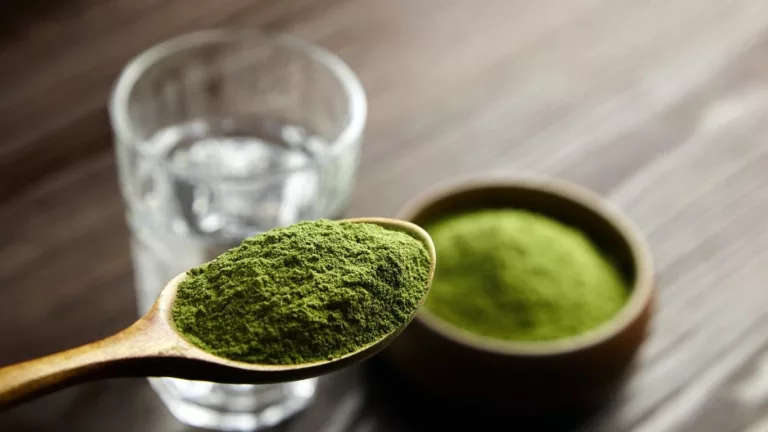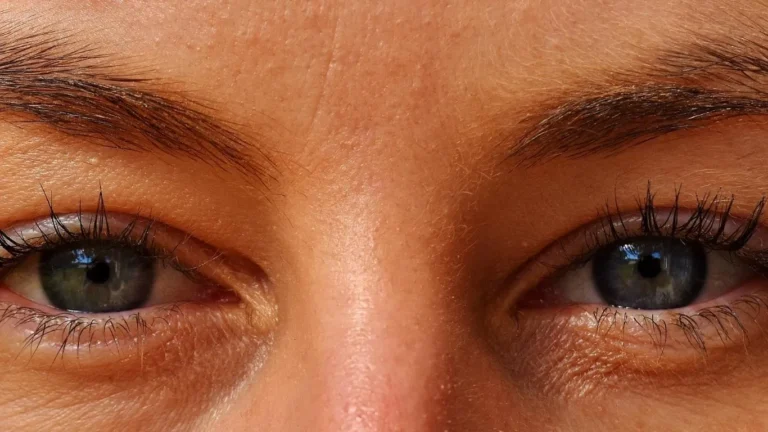How Alcohol Affects GERD Sufferers – What You Need to Know
Let’s be real—giving up a glass of wine, an occasional beer, or that fancy cocktail at dinner isn’t always easy. I get it. I used to enjoy a cold drink on weekends myself. But if you’ve ever felt the burn in your chest creeping up your throat after even just a single drink, chances are alcohol might be making your GERD worse. For those of us managing acid reflux daily, this seemingly innocent indulgence can turn into a digestive nightmare. So how exactly does alcohol play into GERD symptoms, and what can you do about it?
Why Alcohol and GERD Just Don’t Mix

When you have GERD (Gastroesophageal Reflux Disease), the muscle at the bottom of your esophagus—the lower esophageal sphincter (LES)—is already underperforming. Alcohol relaxes this muscle even more. What does that mean for you? Acid from your stomach gets the green light to head north, right into your esophagus. That’s where the familiar symptoms kick in: burning, regurgitation, sore throat, or that annoying cough that just won’t quit.
According to the NIDDK, alcohol is one of the major lifestyle factors that can worsen acid reflux. And it’s not just about the amount. Even small servings can trigger symptoms in sensitive individuals.
How Alcohol Worsens Acid Reflux

1. Weakening the LES
Alcohol, especially red wine and stronger spirits, relaxes the LES. I learned this the hard way after a single whiskey sour ruined an otherwise great night. When that valve weakens, stomach acid has a straight shot up to your throat. That’s basically GERD’s version of a fire alarm.
2. Increasing Stomach Acid
Alcohol stimulates the stomach to produce more acid. So now you’ve got more acid and a relaxed LES? You can imagine how that turns out. More acid equals more potential for reflux episodes—especially if you mix alcohol with trigger foods like fried appetizers or spicy snacks.
3. Irritating the Esophagus
Let’s not forget—alcohol is an irritant on its own. If you already have esophagitis (inflammation caused by GERD), alcohol only adds fuel to the fire. Repeated irritation can even lead to complications like ulcers or Barrett’s esophagus over time.
Which Alcoholic Beverages Are the Worst (and Slightly Less Bad)

- Worst Offenders: Whiskey, brandy, red wine, champagne (all high in acidity and LES relaxants)
- Still Risky: White wine, beer, cocktails with citrus, soda mixers
- Less Harsh (but not safe): Vodka mixed with alkaline water or coconut water (low-acid base)
If you’re curious about specific alcohol choices that are safer for reflux sufferers, check out this detailed guide: What Alcohol is Best for Acid Reflux?
Real-Life: My Wake-Up Call With Alcohol and GERD

It wasn’t until my second ER visit for chest tightness (which turned out to be GERD, not a heart attack) that I finally accepted I couldn’t drink like I used to. I had to stop pretending that my symptoms were random or due to “stress.” It was the alcohol—plain and simple.
Once I cut back—significantly—my nighttime reflux episodes reduced almost immediately. Swapping out that glass of wine for chamomile tea or coconut water may not sound sexy, but sleep without chest fire? Totally worth it.
GERD-Friendly Alternatives to Alcoholic Drinks

You don’t have to miss out entirely on social rituals. Here are a few safe and surprisingly satisfying options:
- Herbal Mocktails: Think mint-infused cucumber water or a hibiscus iced tea blend. Totally reflux-safe and classy.
- Alkaline Smoothies: Blend coconut water, melon, and ginger for a cooling drink.
- Carbonation-Free Sparkling Water Alternatives: Add a splash of aloe juice to chilled still water with herbs.
- Caffeine-Free Chai: Make it with rice milk and gut-soothing spices like cardamom or turmeric (skip cinnamon if you’re sensitive).
Need more GERD-friendly drink ideas? This collection might help: What to Take Before Drinking Alcohol for Acid Reflux
Alcohol and Your Digestive Health—Looking Beyond Reflux

Let’s zoom out. Alcohol doesn’t just play havoc with reflux—it messes with your gut microbiome, slows down digestion, and can trigger bloating and gas. All of which can contribute to that lovely bloated-acid cocktail we know too well.
In some cases, alcohol consumption even interferes with GERD medications, like PPIs and H2 blockers. So not only are you drinking something that causes reflux—it might also be making your treatments less effective.
If you’re still exploring what could be behind your reflux, it’s worth reading up on lesser-known triggers like medications or dehydration. Here’s one resource that opened my eyes: Surprising Causes of GERD That Might Be Harming Your Digestive Health.
What Doctors Say: Medical Perspective on Alcohol and GERD

If you’re on the fence about whether to cut back on alcohol, you don’t have to rely only on personal experiences—medical experts have been saying this for years. The Cleveland Clinic identifies alcohol as a well-known trigger that contributes to reflux flare-ups and worsens esophageal inflammation.
It’s not about going 100% teetotal unless you need to—it’s about understanding that moderation isn’t just a suggestion. For many GERD sufferers, “moderation” with alcohol is like playing roulette with symptoms. You might get away with it once or twice, but it almost always comes back to bite you.
Why “Just One Drink” Can Still Be a Problem

I used to rationalize, “One glass can’t hurt.” But let me be honest—it did. Even low-alcohol options like white wine would bring on symptoms within an hour. And here’s why: when you already have a sensitive esophageal lining, the smallest acid surge can trigger pain. That one drink? It’s enough to undo a whole week of careful eating, elevated sleeping, and medication management.
Some GERD patients are more reactive than others. If you’ve been diagnosed with erosive esophagitis, Barrett’s esophagus, or silent reflux, alcohol—any kind—should be off the menu.
Can You Reintroduce Alcohol Later?

This is the question I asked my GI specialist after three months of symptom-free living. The answer? “Maybe.” Reintroducing alcohol is possible—but it’s a process.
- Wait until symptoms are fully under control for 8+ weeks.
- Start with a small amount of a low-acid drink, like vodka diluted with water or coconut water.
- Avoid drinking on an empty stomach or close to bedtime.
- Keep a reflux journal—track what you drank, when, and how you felt the next day.
Still, for many people, the benefits of skipping alcohol far outweigh the risks of reintroducing it. And I say that as someone who loves the occasional cocktail.
Tips to Prevent Reflux When Drinking Can’t Be Avoided

Sometimes, social events make it tricky to say no. Whether it’s a wedding, work party, or family toast, here are a few ways to minimize damage if you choose to drink:
- Choose low-acid mixers: Think almond milk, coconut water, or even non-citrus herbal infusions.
- Avoid carbonation: Bubbly mixers and beer expand your stomach and push acid up.
- Eat GERD-friendly meals beforehand: Stick to grilled veggies, lean meats, and low-acid starches. Avoid sauces or citrus sides.
- Stay upright for 3 hours after drinking: Reclining or napping too soon is reflux sabotage.
- Have a backup remedy ready: Whether it’s an antacid or natural soothing trick, prepare before symptoms sneak in.
Need ideas on what to eat before or after social drinking? You might like this: Best Foods to Eat for Acid Reflux
Safe Beverage Alternatives That Still Feel Indulgent

If you’re missing the ritual of holding a fancy drink or want to blend in at events, try some of these:
- Mocktails with ginger & coconut water: Anti-inflammatory and soothing
- Cucumber-mint sparkling still water: Refreshing, classy, and reflux-safe
- Chilled chamomile tea with berries: Caffeine-free and gentle on the stomach
- Alkaline tonic with aloe and melon: Great for cooling the digestive tract
You can also make a light homemade herbal elixir that looks like a cocktail without the acidity or sugar. Think tulsi tea with lemon balm and honey drizzle—your gut will thank you.
How Lifestyle Changes Boost the Benefits of Alcohol Elimination

Cutting out alcohol isn’t a magic pill—but combine it with lifestyle tweaks, and you’re golden. Personally, I noticed the biggest difference when I:
- Elevated my bed head 6-8 inches
- Switched to earlier dinners—no food within 3 hours of bedtime
- Started walking after meals—even 10 minutes helped
- Added more water and fiber-rich foods to my daily routine
For more lifestyle-based strategies, this guide is incredibly practical: Lifestyle Changes for Acid Reflux Management
When to Seek Help from a Specialist

If you’ve eliminated alcohol and still experience chronic reflux, it might be time for a deeper evaluation. A GI specialist can assess:
- Esophageal damage using an endoscopy
- Acid exposure levels via pH monitoring
- Hiatal hernia presence which could be complicating symptoms
Long-term GERD can silently lead to complications like Barrett’s esophagus. If your symptoms don’t improve with lifestyle changes and alcohol elimination, don’t wait—get it checked.
You’re Not Alone in This

Living with GERD means making hard choices. But you’re not giving something up—you’re reclaiming control over your health. And if you’re anything like me, the clarity, better sleep, and zero chest pain are more satisfying than any buzz alcohol could offer.
Want to better understand the root causes behind GERD and how they might apply to you? Take a deep dive here: Surprising Causes of GERD That Might Be Harming Your Digestive Health.

Camellia Wulansari is a dedicated Medical Assistant at a local clinic and a passionate health writer at Healthusias.com. With years of hands-on experience in patient care and a deep interest in preventive medicine, she bridges the gap between clinical knowledge and accessible health information. Camellia specializes in writing about digestive health, chronic conditions like GERD and hypertension, respiratory issues, and autoimmune diseases, aiming to empower readers with practical, easy-to-understand insights. When she’s not assisting patients or writing, you’ll find her enjoying quiet mornings with coffee and a medical journal in hand—or jamming to her favorite metal band, Lamb of God.







